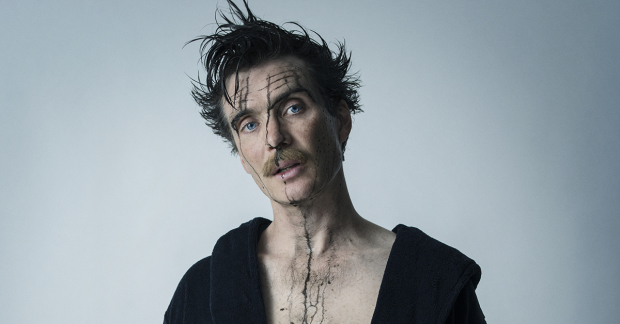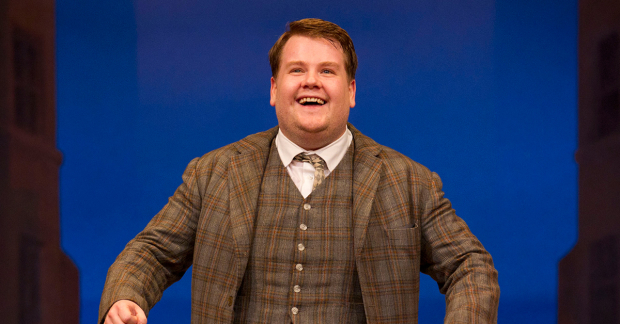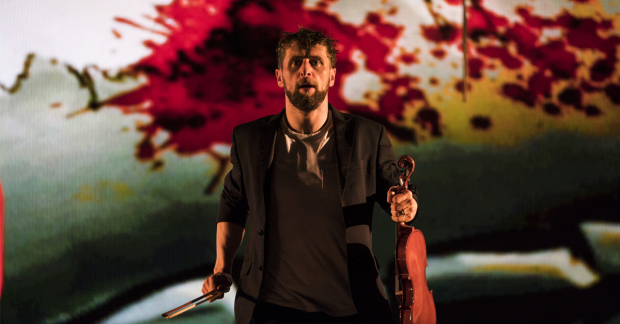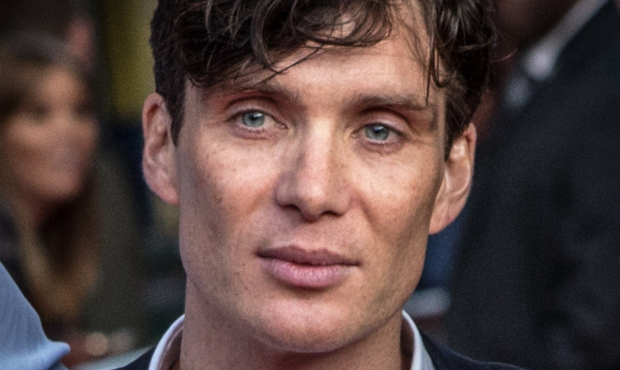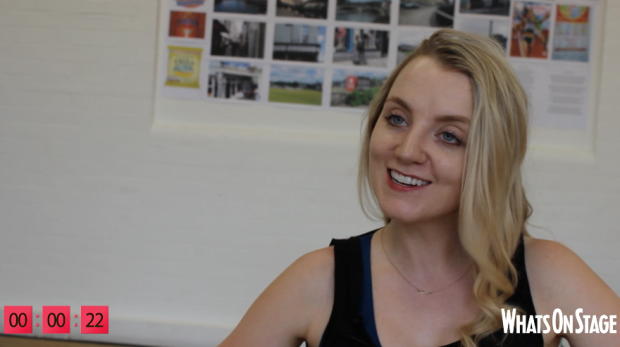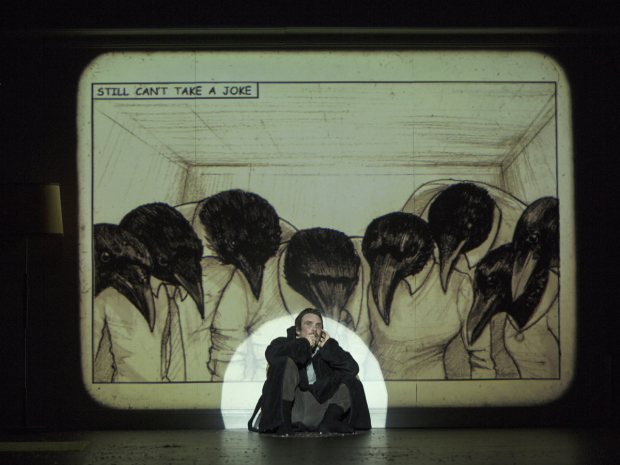Review: Grief is the Thing With Feathers (Barbican)
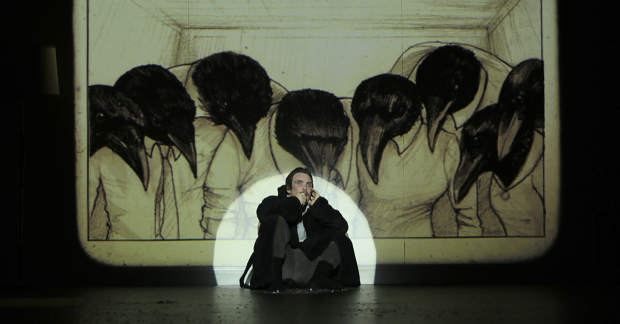
© Colm Hogan
Half way through Cillian Murphy's first speech in this adaptation of Max Porter's debut novel, produced by Wayward Productions, I realised I was thinking the wrong thing. Instead of being impressed by Murphy's portrayal of a man felled by grief after the sudden death of his wife, I found myself admiring the way he was getting his mouth around great gobbets of poetic text.
This has nothing to do with Murphy's performance, which is the principal reason for seeing this production. But it has everything to do with Enda Walsh's decision, as director and adaptor, to put this tale on the stage in the first place. On the page, Porter's meditation on loss as it afflicts a lonely academic with an obsession with Ted Hughes' poem "Crow" and no ability to care for his two young sons, has won high praise.
On stage, the strain of transferring its high-flown descriptions – "he didn't see me against the blackness of his trauma", "the whole city is my missing her" – is carried by a hyper-active staging which covers the walls of Jamie Vartan's set with great scrawls of scratchy writing, which turn to black as Crow takes over the father's world. Later, slides of happier times and typewritten extracts from the book appear, accompanied by an ear-splitting, dissonant soundtrack.
At the heart of it all is Murphy, both man in mourning and his companion the destructive yet protective Crow. He's unrecognisable from the brusque Tommy Shelby in Peaky Blinders and his empathy with Walsh's world is palpable. By the simple expedient of pulling his fluffy dressing gown hood over his head, pinioning his arms behind him like wings, and bending into a low crouch from which he can hop like a bird, he becomes the strange, disruptive creature, his voice distorted as he shouts tales of darkness and despair.
But he's even better in the quieter moments when he is a man struggling with his own inadequacy in the face of overwhelming loss. His sons – David Evans and Leo Hart – enact rituals of survival in their pyjamas, chipping in their own view of events where their mother has vanished and a black bird has come to rule their lives. There are some lovely moments, not least the one where they eat bags of chips, bored at a bird of prey sanctuary, then suddenly stare up in wonder when a crow takes on an eagle.
In three shortish acts, they emerge from darkness to a sort of light, a kind of resolution. It is accomplished and deliberately artful, but strangely distancing. Others will no doubt love it, but it left me cold.



